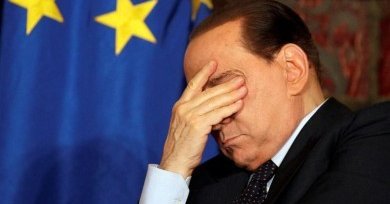Once again, some commentators have been quick to declare the end of a figure who has dominated and shaped Italian politics during the last twenty years, similarly to what had happened after his forced resignation as Prime Minister in November 2011. However, we shall not forget that one defining characteristic of Berlusconi over the years – and especially during the last decade – has been his resilience, as proved in the 2006 and, to a lesser extent, 2013 general elections, when ample defeats for his coalition had been widely predicted. It is certainly true that this time things are different, because Berlusconi has for the first time lost his Parliamentary immunity, a benefit which some believe was among the main reasons behind his “entering the field” in 1994. But is this enough to believe that the long era of Berlusconi is over and that Italy now has a bright future in front of her?
The current situation of the country from a political point of view is far from ideal. An unelected Prime Minister, Enrico Letta, is leading an unelected Government which relies on the support of parties often torn between the need to show they are ‘responsible’ and the instinct to scramble for the best positions ahead of the next, inevitably near election. And not only is the Government unelected, but we now even have a situation which sees neither leader of the three main parties sitting in Parliament.
We know about Berlusconi of course, but what about the other leaders? Well, Beppe Grillo is not eligible as a candidate according to the statutes of his own Movement, since he was condemned for manslaughter in 1985, and in fact he does not have any formal position at the moment. As for the Democratic Party, the Mayor of Florence Matteo Renzi was recently elected as new leader after the results of the party’s primaries saw him comfortably beat all opponents. The Italian electoral law does not allow mayors of bigger cities to sit in Parliament, and Renzi will have to wait at least until the next general election to become an MP.
This situation is perhaps an indicator of the current health of democratic institutions in the country, but beyond the mainly academic considerations we can see that this is not something merely symbolic. Now that he has been ousted from Parliament, Berlusconi is behaving like a wounded beast, even suggesting an unlikely alliance with the Five Star Movement of populist ex-comedian Beppe Grillo - many of whose supporters see Il Cavaliere as an icon of all that is wrong with Italy - against the Letta Government and the President of the Republic, Giorgio Napolitano, whom he sees as a culprit for his expulsion from Parliament. Grillo’s Movement is still in its stubborn opposition to any potential deals with the current Government, and it is instead advocating an unlikely withdrawal from the Euro.
As for the Democratic Party, Renzi has (so far successfully) tried to present himself as breaking with its communist past and willing to take it into a new political season, akin to Tony Blair’s New Labour. Whether he succeeds will have to be seen, but in the meantime he will have to decide if he wants to support Letta’s government until the planned 2015 election or if he wants to push it over the edge and present himself as a strong candidate for Prime Minister.
The positions of their three main parties and of their leaders, now sitting outside the Parliamentary establishment, could not be further away from each other, but they still attract the support of a significant part of the population. This situation gives the impression of a country in full transition, without a clear direction of travel. We can perhaps now say that the Berlusconi era is over and that we have entered a transition period, where parties will not anymore be characterised by their being pro- or anti-Berlusconi, but is this the prelude to a brighter future for the Bel Paese? It might be, but only if the words “effective leadership” and “strategic plan” are exhumed from the political history books and given again a real meaning.

Follow the comments: |
|
